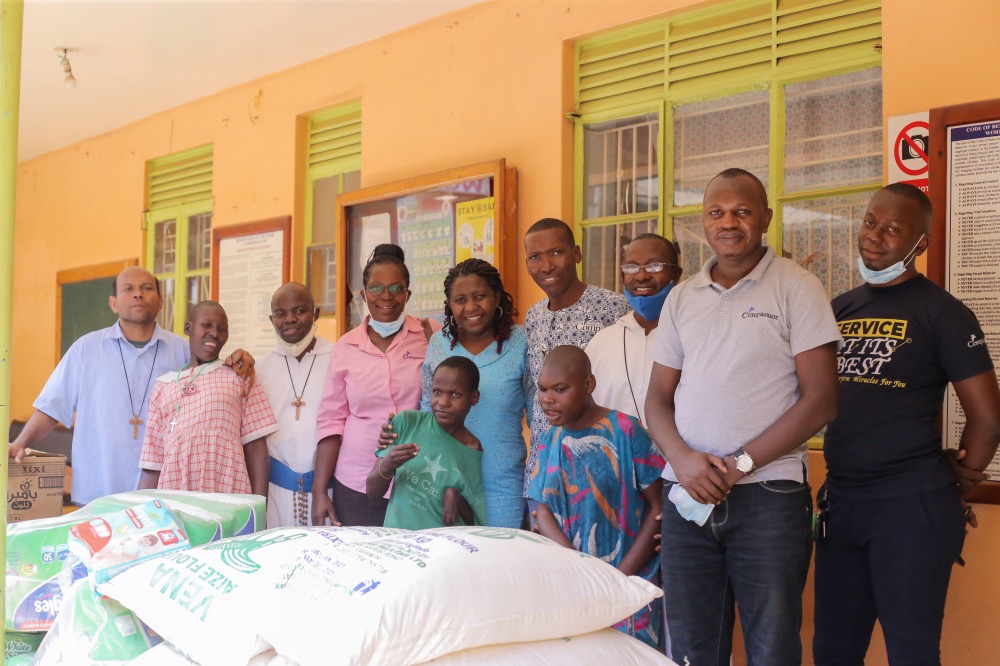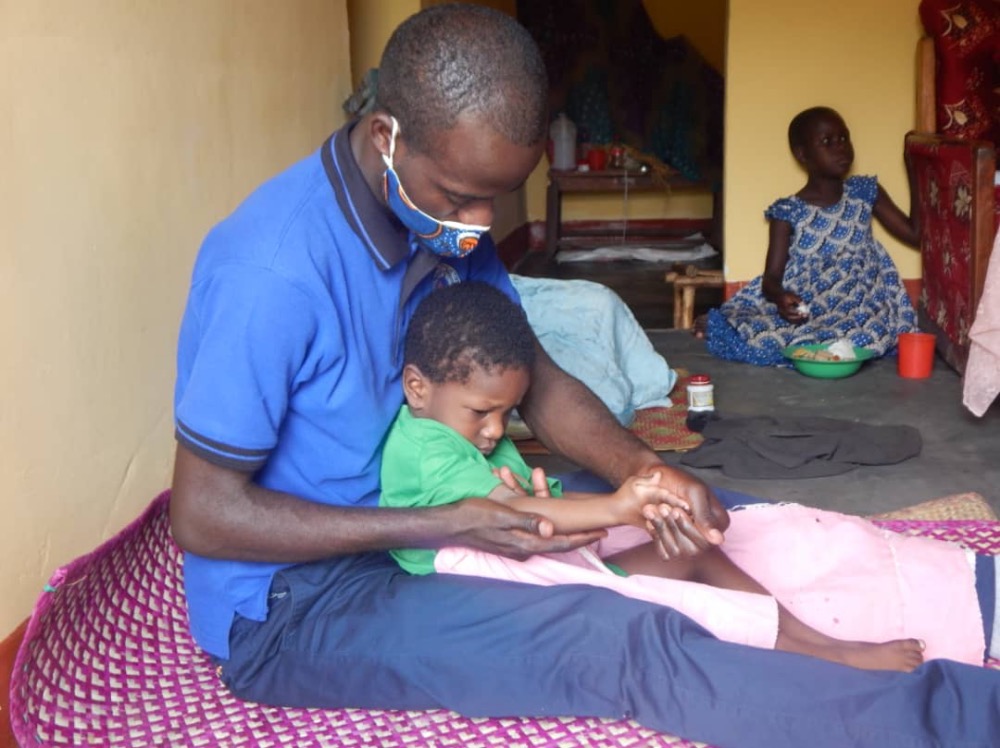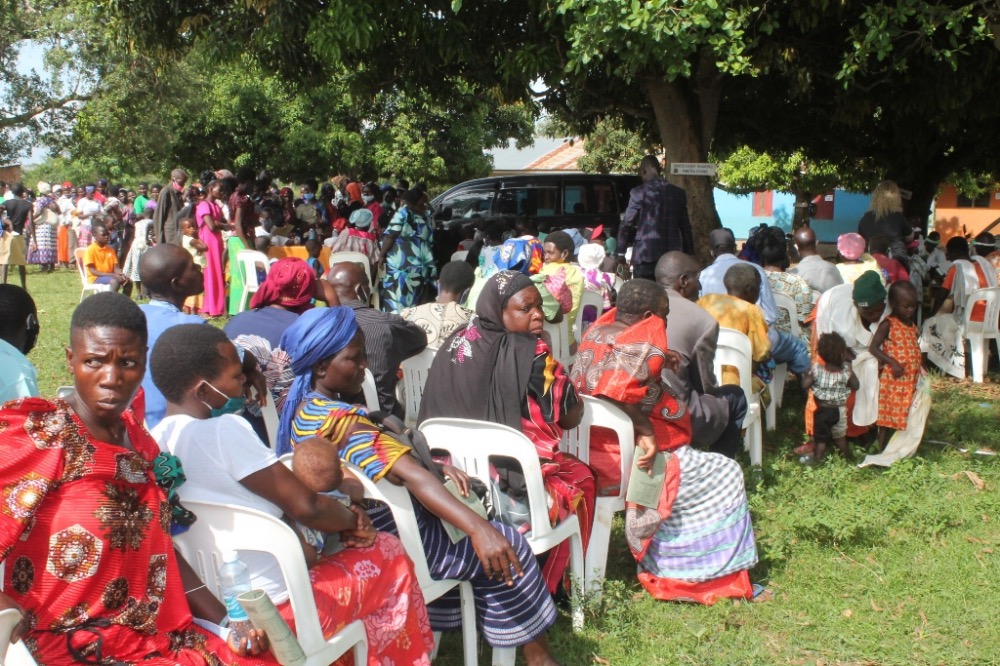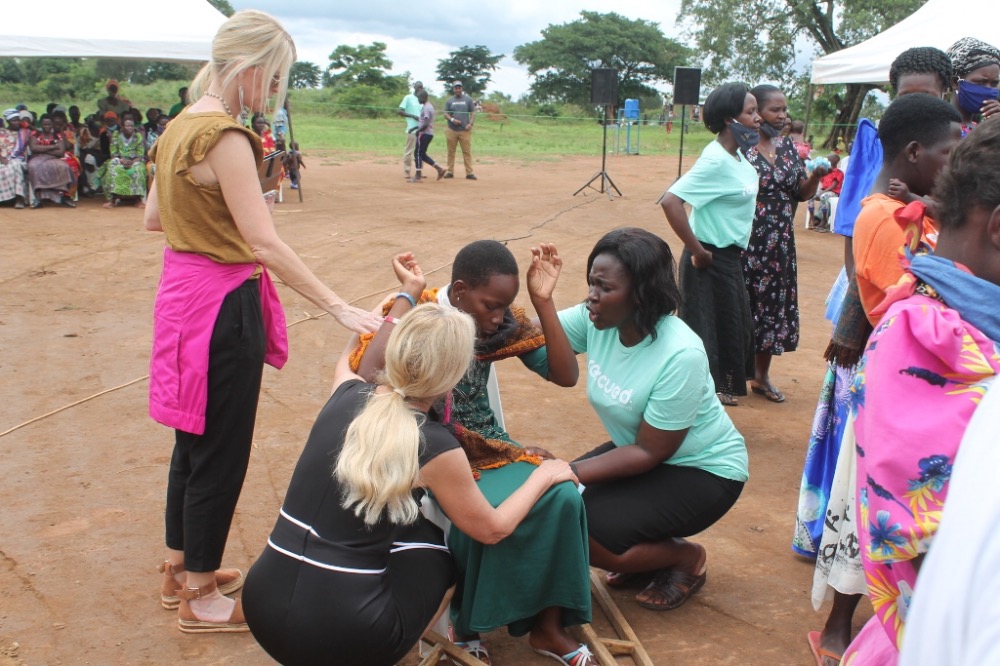
JOHN SEMAKULA reports from Kampala on how mission organisations have weathered the coronavirus pandemic in Uganda…
Kampala, Uganda
After more than a year of COVID-19 battering the world, the end of the pandemic seems no-where in sight. At least that is what the resurgence of the disease in many countries seems to suggest. As such, many Christian missionaries and aid organisations in Uganda have been forced to revise workplans to suit the ‘new normal’ within their operations.
Since its creation in 2001, Children in Need (CHIN), a community-based organisation located in Mukono district, central Uganda, has provided medication and education to hundreds of children and youth with disabilities within its neighbourhood.
The emergence of COVID-19, however, has conspired to cripple most of the services CHIN provides, especially during the Ugandan Government’s lockdown, which took place from March to June, 2020, in a bid to reduce the spread of the coronavirus.
“Before the outbreak of COVID-19, we used to transport children from their homes to the centre every day for education and physiotherapy,” Ritah Nakazibwe, the project’s accountant, said. “But when the lockdown was imposed, we stopped and, unfortunately, the children retrogressed in their progress.”

A physiotherapist at CHIN offering physiotherapy to one of the children at the Centre in Mukono District recently. PICTURE: Courtesy of CHIN.
CHIN was founded by the Sisters of the Sacred Hearts of Jesus and Mary, mainly to support children with disabilities. At the start of the lockdown, the organisation sent 148 children who were in their custody back to their homes. Most the parents had no ability to provide for their children, particularly during the lockdown period.
With public transport suspended and a dusk-to-dawn curfew – all part of the Ugandan Government’s measures to address the pandemic, the Sisters at CHIN had initially resolved to walk to work during the lockdown. But they later gave up thanks to the long distance from their convent to the centre where they look after disabled children, a distance of about 15 kilometres (the centre eventually reopened earlier this year after lockdown was lifted).
The COVID-19 lockdown also affected CHIN’s farm projects which are not only a source of food for the disabled children they cared for but also used to equip local people with modern farming skills to boost their household incomes.
“We needed to monitor the animals on the farm every day, but it was not easy,” Sr Teddy Nanziri, who is in charge of agricultural projects at CHIN, said.
“We needed to monitor the animals on the farm every day, but it was not easy.”
– Sr Teddy Nanziri.
Sr Nanziri told Sight they were lucky that their donors understood the circumstances under which they were operating and agreed to changes to planned activities. But they did not get the extra funds they required as a result of the programs changing.
CHIN came up with the plans of distributing holiday learning packs for the children usually in their care. They also increased the number of outreaches made to the communities. Sr Nanziri noted that although the changes came with more expenses, they were ready to bear the brunt, as long as it was service to humanity.
CHIN was not the only organisation feeling the pinch of the disruptive effects of COVID-19. Compassion International, a Christ-centred, church-based and child-focused organisation, was also affected, but prides in having read ahead and prepared well for the lockdown.
“By the time the lockdown was imposed, Compassion International was already implementing a work system of both on-station and virtual, so its national office staff were able to quickly adjust to fully working from home,” Prim Tumuramye, the public relations specialist at Compassion International, said.
“The declaration of the pandemic brought fear and anxiety. Everything came to an abrupt halt. Since we serve the most vulnerable categories of people – babies, mothers, children and youth living in poverty – it was certain that the pandemic would disrupt their already difficult lives.”

Compassion International donates food items to Good Shepherd Home of the Poor in Kisenyi-Kampala recently during the lockdown. PICTURE: Courtesy of Compassion International.
Tumuramye said their normal operations – involving wholistic child development in partnership with the evangelical churches – was able to continue, albeit with limited contact with the beneficiaries.
“Food interventions, sanitary supplies, discipleship through home visits and wholistic medical interventions were carried out for all registered beneficiaries,” Tumuramye said. “Caregivers of sponsored beneficiaries were also supported to start income-generating activities.”
The organisation also carried out major corporate social responsibility initiatives in 17 institutionalised children’s homes including homes for abandoned babies, pregnancy crisis centers, juvenile detention centres and special needs children’s homes as well as providing food for flood victims in Uganda through a community church feeding project.
The situation was no different at The Vine Ministries, an international religious organisation based in Kamuli district in eastern Uganda. Before the lockdown, the evangelical organisation funded by Gari Mercham, a US citizen who comes from Boston in the States, offered free medical care, scholarships and economic empowerment programs to the local communities. When COVID-19 emerged, these were no more.
Richard Mwogereze, the organisation’s executive director, told Sight they had to suspend their activities due to the pandemic after the flow of the funds from the US donors reduced sharply during the lockdown.
“It was hard sourcing the funds and tricky distributing them to the beneficiaries. We had to first seek clearance from the Resident District Commissioner, the police and local leaders before reaching out to the beneficiaries,” Mwogereze said, adding that short of that, the distributors faced arrest.
Ssenga Kalembe, 57, one of the beneficiaries of The Vine’s free health services told Sight that the lockdown denied him access to quality medical care through the organisation.
“I have high blood pressure and diabetes and I used to receive free medication from The Vine before the pandemic, but for 12 months, I was on my own, which affected my health,” he said.
Janet Namusobya, a 14-year-old mother of triplets, also told Sight that the lockdown hurt the health of her babies because The Vine, which previously provided her with free nutritious foods and health services, had suspended its operations.
Despite the challenges during the lockdown, the organisation continued to offer some little help, particularly to children.
“We initiated a home-based learning project, which distributed reading materials to children,” Mwogereze said. “We continued with some of the interventions, although some donors had stopped sending us funds.”

Residents of Kamuli District in eastern Uganda lineup for medical checkups during a health camp organized by The Vine at Bwiza Primary School in Namasagali Sub County. PICTURE: John Semakula.
Similarly, at World Vision Uganda, a field office of the international Christian humanitarian and development organisation, the pandemic threatened the organisation’s activities.
“The restrictive lockdown and protocols, coupled with the uncertainty of sustainable funding, threatened our ability to fulfil our promises to the millions of vulnerable children in the communities,” Jason Evans, the organisation’s national director, said.
Despite the challenges, Jason counts 2020 as one of the years where they registered success.
“I firmly believe that we were able to live up to our mission and Christ’s call on our lives in order to reach the most vulnerable children and their families across this great nation.”
– Jason Evans, national director of World Vision Uganda.
“I firmly believe that we were able to live up to our mission and Christ’s call on our lives in order to reach the most vulnerable children and their families across this great nation,” he said.
COVID-19 also forced ABWE (Association of Baptists for World Evangelism) missionaries in the country to adjust their programs in order to help the needy during the lockdown.
“’The heart of man plans his way, but the Lord establishes his steps’ (Proverbs 16:9),” wrote Caleb Mitchell in an article titled, ABWE missionaries meet the needs of hungry Ugandans. “As things progressed early last year, none of us knew what to expect as the airports, churches, and schools were abruptly closed here in Uganda. Yet, God has been at work all around the world, bringing people to himself and showing many just how utterly dependent we are on him.”
Through a Uganda Benevolence Fund initiated by ABWE missionaries, the ministry was able to financially partner with two initiatives in Jinja district in eastern Uganda to distribute food to the poor who were starving. One of ABWE’s partners, Good Shepherd’s Fold, provided 20,000 kilograms of food, equatung to 80,000 meals serving 3,700 people in 750 households.
The organisation also provided relief medical funds towards major surgeries, malaria treatment, transportation to hospitals and pre-natal care for the poor during the lockdown.

Members of The Vine Ministries praying for one of the locals in Kamuli District during an evangelical camp held recently. PICTURE: John Semakula.
Yet, while organisations have faced hardships during lockdowns in Uganda, their situation has been by no means unique.
Scholar Paul Bendor-Samuel, writing in an article last year titled Covid-19, Trends in Global Mission, and Participation in Faithful Witness which was published by SAGE Journals, the pandemic stimulated enormous activity by Christians in various localities around the world as well as putting a brake on some aspects of mission.
“The current global crisis highlights the action of the Spirit of God in our world, fractured by diseases and suffering, as well as injustice and inequality, so often multiplied by human choice and action,” he says.





